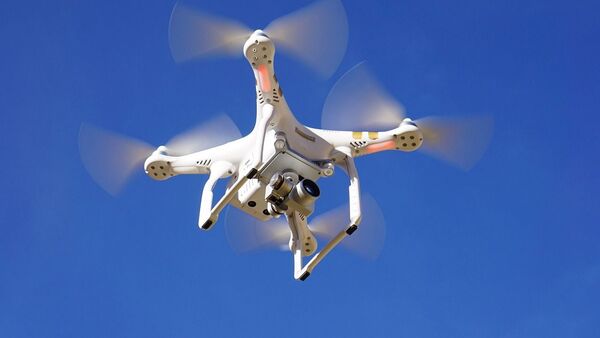European governments have increasingly been buying China-built DJI drones, despite concerns from the US, Politico has reported.
The tech company DJI has a global monopoly on the production of drones – controlling a 74% share of the world market in 2018 – with French, Dutch, German, and British military and law enforcement agencies becoming increasingly reliant on the Chinese drones for their observation and inspection purposes.
In particular, DJI representatives confirmed for the outlet that a French commercial military company uses drones for surveillance, while in Germany, unmanned vehicles are being used in the navy, with a spokesperson for the country's military confirming that he was not “aware of any security issues” related to the use of the drones.
However, a representative from the Dutch Ministry of Defence insisted that the Chinese drones are being used by the country’s military only for “different communications sections in order to make footage” and are not being used for reconnaissance due to security concerns, with the Netherlands relying on US-built Raven drones for such tasks instead.
“A number of DJI drones have been bought for unclassified and non-operational use, such as news-production, inspection of drain-pipes and advertisement in connection to property sales”, the Dutch military spokesperson said. “For classified military purposes other systems are acquired”.
The British Armed Forces have also avoided using Chinese drones, but the country’s police are said to frequently use drones for people searches, road traffic collisions, or other vital security operations.
“There is very little thinking along the lines of, ‘Is this something we should be concerned about?’” says Ulrike Franke, a policy fellow at the European Council on Foreign Relations. “No one is actually concerned”.
In the meantime, unlike most of its European partners, US government agencies remain extremely worried over the use of DJI drones due to the alleged sensitivity of the data on critical infrastructure being collected and the possibility of this information being obtained by third parties - despite the widespread need for drones in search-and-rescue missions, border monitoring, and patrols.
In July 2019, the US Department of the Interior publicly refused to use DJI drones, as they “did not meet UAS [unmanned aerial systems] data management assurance standards”, but due to the lack of alternatives, the US government had to resort to DJI equipment, albeit with some adjustments to security checks.
However, the ban on DJI drones has been maintained both by the US military and the Department of Homeland Security, which have resorted to Chinese-made UAVs only in specific cases.
Harry Wingo, a professor at the National Defence University, said during a hearing in the US Senate on drone security this summer that DJI’s access to the US market “literally gives a Chinese company a view from above of our nation”, going on to ask whether the data collected by the drones could be accessed by the Chinese government. The company responded to the Senate by arguing that Wingo’s assessment was “unsubstantiated speculation” and “inaccurate”.
Concerns over data security issues emerged in the wake of the US government blacklisting Chinese tech-giant Huawei from purchasing American technology in May this year, a move that was justified by allegations that the company was collaborating with Chinese intelligence, which in turn was purportedly illegally collecting data from the firm's users. Huawei has repeatedly denied these claims, calling them unjustified and politically motivated.




